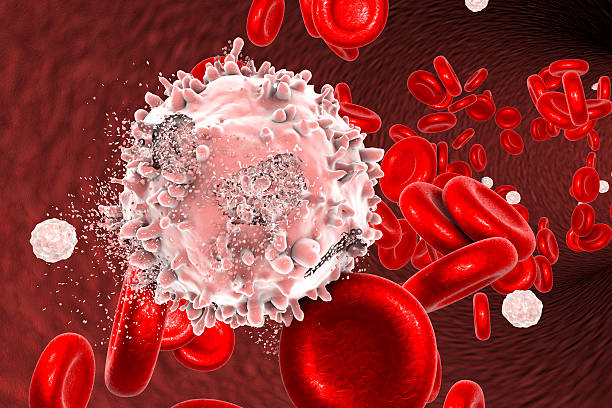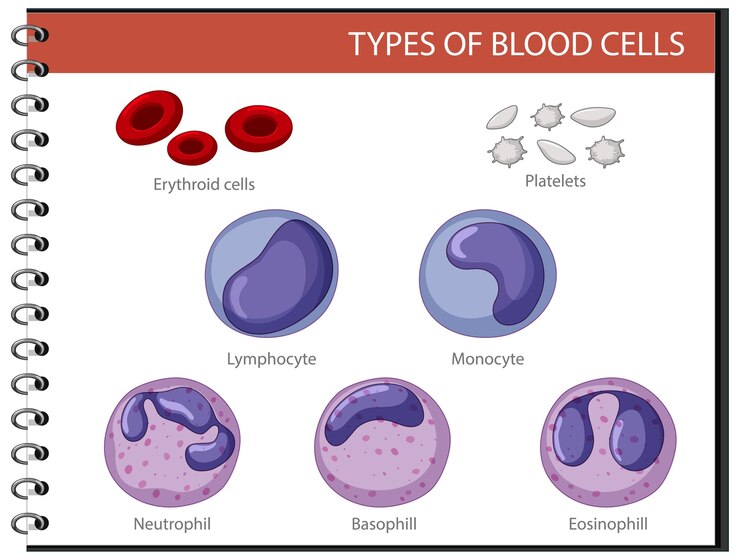Blood Cancer: An Overview of Symptoms, Causes, and Treatment Options

In this article, we'll provide an overview of the symptoms, causes, and treatment options associated with blood cancer. We'll also discuss strategies for managing the condition and improving quality of life. With the right approach, individuals with blood cancer can lead full and productive lives.
Blood cancers are malignancies of the blood-forming tissues of the bone marrow. There are many different types of blood cancers, and they are often grouped according to where they occur in the bone marrow and what type of cells they affect. The most common types are lymphoma, leukemia, and myeloma. Blood cancers occur when certain white blood cells, which normally fight infection and help to regulate the immune system, grow abnormally and form tumors that damage healthy tissues. These abnormal cells may also crowd out other important blood cells, such as red blood cells that carry oxygen throughout the body and platelets that help stop bleeding.
Reference Source
Symptoms of Blood Cancer
The symptoms of blood cancers vary depending on the type of the condition. They may include fatigue, fever, weight loss, night sweats, anemia, and swelling in the limbs or abdomen. The symptoms can vary from person to person, and there may be no symptoms in the early stages of the disease.
Reference Source
Causes of Blood Cancer
Blood cancers can be caused by a variety of factors, including genetics, infection, long-term exposure to certain chemicals, and lifestyle choices, such as smoking and a poor diet. Some people have a personal or family history of the condition, while others may get the disease after exposure to a certain environmental or viral factor.
Types of Blood Cancer
There are several types of blood cancer, including:
- Lymphoma - This type of blood cancer occurs when malignant cells form in the lymph nodes and lymphoid tissue, which is located throughout the body, including in the liver, abdomen, and skin.
- Leukemia - This type of blood cancer affects the bone marrow, where blood cells are made, and is often curable with treatment.
- Myeloma - This type of blood cancer occurs in plasma cells, which are a type of white blood cell that helps fight infection. Other types of blood cancers include multiple myeloma, Waldenstrom's macroglobulinemia, and Hodgkin's lymphoma.
Reference Source
Diagnosis of Blood Cancer
Blood cancers are typically diagnosed with a blood test and a physical exam. The lab tests may show an abnormal level of white blood cells, low levels of red blood cells, or a low blood platelet count. A physical exam may show swelling in the limbs or abdomen. Imaging tests, such as CT scans, may also be used to confirm the diagnosis.
Treatment Options for Blood Cancer
Blood cancers are often treated with a combination of chemotherapy, radiation therapy, and surgery. New treatments are being developed all the time, and doctors are often able to find a suitable solution for most people with the condition. For example, a new drug called Spinnato (fevelsitinib) was just approved by the FDA for the treatment of certain types of blood cancers.
Managing Blood Cancer
Blood cancers are usually managed with a combination of medication and lifestyle changes. For example, those with leukemia may need to take a combination of drugs to manage the condition, while those with myeloma may require surgery to remove the tumors. Reducing stress and maintaining a healthy diet and exercise routine can also help to minimize symptoms and improve quality of life. Doctors may also recommend vitamin supplements and relaxation techniques for added support.
Improving Quality of Life with Blood Cancer
Quality of life can be affected by a wide range of blood cancer symptoms, including fatigue, night sweats, and anemia. However, there are various strategies that can be used to minimize these symptoms and improve quality of life. For example, blood transfusions may be needed to manage anemia, while fever reducers and antigigalutamine drugs may be needed to manage night sweats. A healthy diet, exercise routine, and adequate rest can also help to reduce symptoms and improve quality of life. Sleep is particularly important for blood cancer patients as it gives the body a chance to rest and repair itself.
Conclusion
Blood cancers are a serious and life-threatening condition that can cause a wide range of symptoms, including fatigue, fever, night sweats, anemia, and weight loss. There is no known cure for blood cancer, but there are a variety of treatment options available to manage the symptoms and slow the progression of the disease. With the right approach, individuals with blood cancer can lead full and productive lives.
Reference:
https://www.mayoclinic.org/diseases-conditions/leukemia/symptoms-causes/syc-20374373
https://www.webmd.com/cancer/lymphoma/types-and-differences
https://www.tandfonline.com/doi/full/10.3109/10428194.2012.656106
https://www.who.int/health-topics/cancer

Wow. I am really surprised. This is the First time I am hearing about blood cancer though
Thank you
Cancers are terrible, early diagnosing would make treatment possible and easy. Imagine that the blood i affected by an untreatable disease, it is really terrible.
Thank you
Thanks for your contribution to the STEMsocial community. Feel free to join us on discord to get to know the rest of us!
Please consider delegating to the @stemsocial account (85% of the curation rewards are returned).
Thanks for including @stemsocial as a beneficiary, which gives you stronger support.